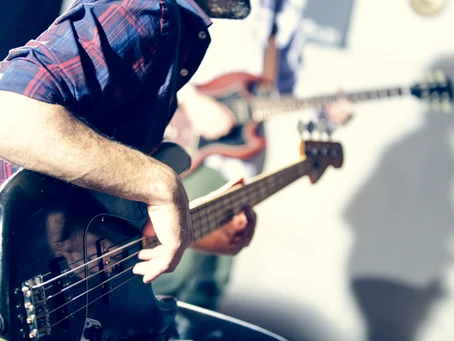In the field of hearing health there is much to do and much more to raise awareness. It is becoming more and more common to see professional musicians on stage wearing custom-made in-ear monitors, but the care of our ears must start much earlier. We must start in the rehearsal room to prevent tinnitus.
It’s been a few years since I used to accompany my friends to a storage room or garage to watch them rehearse. They used to use rugs and egg cartons to avoid reverb. The bass drum would thunder and the guitar would turn up the volume on its amp because it couldn’t be heard. When they all played at the same time, it was easily over 100 db.
Nowadays, in many cities, we find companies that rent rehearsal rooms and recording studios infinitely better suited than my friends’ garage, but the instruments and amps still emit the same amount of sound.
Rock, Tinnitus and how to prevent it.
I belong to the so-called Generation X and nobody had told us that there were earplugs for musicians, nor did it cross our minds that there would come a day when we would not be able to hear some frequencies. When we were told: “you’re going to go deaf”, we thought that if with the cane that we put on, the next day we could still hear well, nothing would happen.
In the end it takes its toll. For some, in their thirties; for others in their forties, but Tinnitus is here to stay.
Tinnitus is a symptom that something is happening in your ear, in many cases hearing loss. In the case of musicians who have been exposed to high levels of sound in a continuous and repetitive way, it is frequent that it starts as a small sharp and continuous beep when we are silent, when we go to sleep, when we are reading alone in a room, etc. It is a clear symptom that we have probably caused damage to the ear. In the most severe cases we can hear Tinnitus in any situation and it can accompany us in most of our life, requiring specific therapies to normalize it in our daily life (“Pulpur” singer of Ska-P has given several interviews raising awareness on this issue: https://elpais.com/cultura/2021-10-27/vivir-con-un-millon-de-grillos-en-los-oidos-la-batalla-de-los-musicos-espanoles-contra-la-sordera.html ).
The damage caused by exposure to these high levels of sound is called Acoustic Trauma and is manifested by a notch in the high frequencies of our audiogram and if this notch exceeds 25 db. we are already talking about hearing loss. This type of hearing loss is the most complicated to identify by ourselves, since we can be hearing well most of the audible spectrum except for some very specific frequencies, usually 3k and 4k Hz. The greater the notch, the greater the difficulty and one of the first symptoms is the difficulty to understand when several people speak or when we are in a noisy environment, being especially difficult to understand the voices with a higher pitched timbre.
Now that we know the consequences of exposing our ears to excessive levels of sound, let’s go with the recommendations to prevent it. And the best recommendation I can give you is PREVENTION. Starting in the rehearsal rooms. We can use earplugs with flat attenuation filters, unlike the normal earplugs that prevent us from hearing the highs but the lows pass as if we had nothing on, the earplugs with flat attenuation filter allow to reduce the sound in all frequencies equally, so there is no distortion of the sound and we still hear all the instruments. There are standard ear plugs as well as ear plugs made to fit your ear, which guarantees a perfect fit to your ear canal, even if it is very narrow or very wide. In addition, they are also suitable for use with supra-aural headphones, in case we use them as monitors (in this way they are used by many airplane pilots, since they allow them to hear the instructions given through the headphones while the supra-aural headphones protect them from ambient noise). And we can also take them to concerts, where we will hear the music perfectly, but at a lower level.
I am encountering more and more cases of middle-aged musicians with hearing problems that previously did not occur until very advanced ages. Hearing damage is cumulative and will probably not show up the next day but after a few years.
To know the health and condition of your ears, you should have a complete hearing test, including a High Frequency audiometry, where you can assess damage that does not appear in the normal audiometry and which will reveal the real age of your ears and the frequency of your tinnitus. And if you suffer from tinnitus, your Aude hearing center offers therapies and rehabilitation to help you cope with it.
Do you experience ringing in your ears after exposure to loud music? At Aude Centro Auditivo, we are here to help. Contact us and schedule a no-obligation hearing evaluation.


